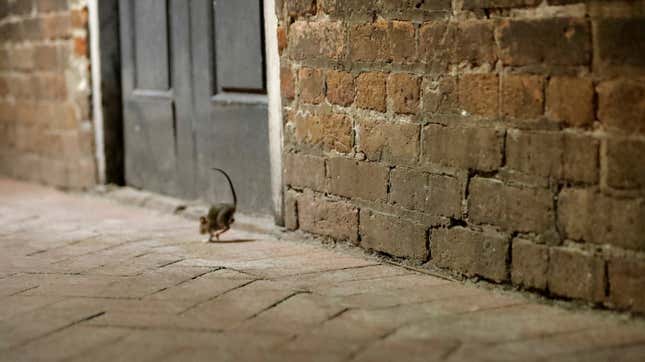The Rats Are Hungry
Latest

One of the only things I’ve enjoyed about coronavirus is the pleasing photos and videos of previously bustling areas slowly being taken over by animals: The sheep riding a merry-go-round in England. The coyote trotting around the empty streets of San Francisco. Boars rustling around planters in Barcelona. The armies of rats eating each other due to the lack of trash for them to root through. Nature! Fantastic!
-

-

-

-

-

-

-

-

-

-

-

-

-

-

-

-

-

-

-

-

-

-

-

-

-

-

-

-

-

-

-

-

-

-

-

-

-

-

-

-








































